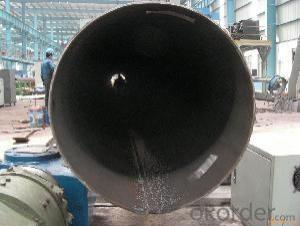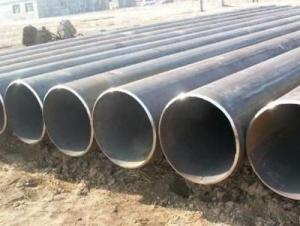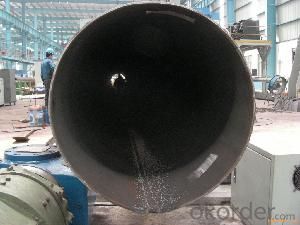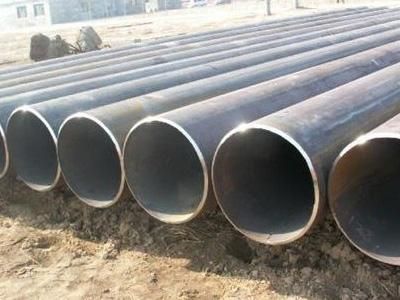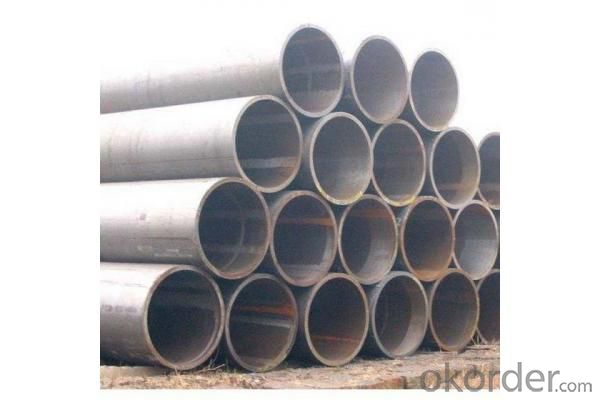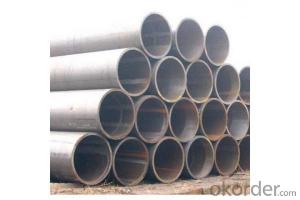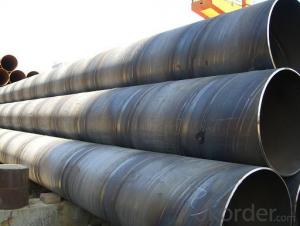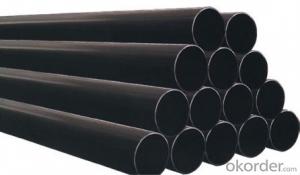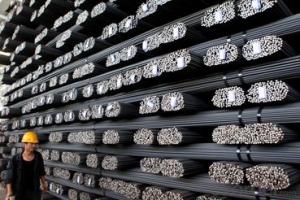LSAW STEEL PIPE 6'' -48''
- Loading Port:
- China Main Port
- Payment Terms:
- TT OR LC
- Min Order Qty:
- -
- Supply Capability:
- -
OKorder Service Pledge
OKorder Financial Service
You Might Also Like
Packaging & Delivery
Packaging Detail: | Normal exporting packing,in container or bulk vessel or as per clients' request |
Delivery Detail: | 2 months after confimed contract |
Specifications
Large Diameter API 5L X70 PSL2 LSAW Steel Pipe
Grade: X42, X46, X50, X52, X60, B, C
OD: 1.5"-28"
WT: SCH10-SCH160
Brand:TPCO
Large Diameter API 5L X70 PSL2 LSAW Steel Pipe
Specifications:
u Standard: API 5L
u Grade: B, C, X42, X46, X50, X52, X56, X60, X65, X70, X80
u OD: 1.5"-28"
u WT: SCH10-SCH160
u Length: 5-12m
u Ends Finish: plain end, bevel end, grooved end
u Surface Treatment: bare, black varnished, oiled finish, red color, anti-corrosion, 3PE, FBE or epoxy coating
u Technique: hot rolled or cold drawn
u Application: api 5l steel pipe for conveying oil, water, gas
u Invoicing: based on theoretical weight or actual weight
u Payment Terms: L/C at sight, T/T or Western Union
u Trade Terms: FOB, CFR, CIF
u Certification: ABS manufacturing assessment, ABS design assessment, API 5CT, API 5L, DNV manufacturer certificate, ISO9001 quality management system certificate, ISO14001 environment management system certificate, GB/T28001 occupational health and safety management system certificate, A1 class manufacturing license of special equipment certificate, CCS, GL, LR, SGS, TüV, PDE
- Q: How are steel pipes insulated for thermal applications?
- Steel pipes are commonly insulated for thermal applications using various materials such as fiberglass, mineral wool, or foam insulation. These insulating materials are typically wrapped around the steel pipes to create a protective barrier that reduces heat transfer. Additionally, a vapor barrier may be installed to prevent moisture condensation. This insulation helps to maintain the desired temperature of the fluid or gas being transported through the pipes and prevents energy loss.
- Q: Can steel pipes be used for geothermal heating systems?
- Yes, steel pipes can be used for geothermal heating systems. Steel pipes are commonly used in the construction of geothermal systems due to their durability, high heat transfer capabilities, and resistance to corrosion. They are capable of withstanding the high temperatures and pressure associated with geothermal heating systems, making them an ideal choice for transporting and distributing the geothermal fluid.
- Q: Can steel pipes be used for conveying food and beverages?
- Steel pipes can be used for conveying food and beverages, but certain precautions need to be taken to ensure their safety and suitability for this purpose. Firstly, it is important to choose food-grade stainless steel pipes that are specifically designed for handling food and beverage products. These pipes are made from high-quality stainless steel that is resistant to corrosion and does not leach harmful substances into the food or beverage. Secondly, the pipes should be properly cleaned and sanitized before and after each use to maintain hygiene standards. Regular cleaning and maintenance will prevent the accumulation of bacteria or contaminants that could potentially contaminate the food or beverage being transported. Additionally, it is crucial to consider the compatibility of the food or beverage with the steel pipes. Certain acidic or corrosive substances may react with the steel, causing contamination or compromising the integrity of the pipes. In such cases, alternative materials like food-grade plastic or rubber may be more suitable. Overall, steel pipes can be used for conveying food and beverages, but it is essential to ensure the use of food-grade stainless steel pipes, proper cleaning and sanitization, and compatibility with the specific food or beverage being transported. Following these guidelines will help maintain the safety and quality of the food or beverage during transportation.
- Q: What is the difference between seamless steel pipe and welded pipe?
- The main molding process is different. Ordinary steel pipes, such as tap water pipes, are usually welded by bending flat plates, and you can find a seam on it;
- Q: How are steel pipes used in the construction of stadiums?
- Steel pipes are commonly used in the construction of stadiums for various purposes such as structural support, plumbing, and drainage systems. They provide strength, durability, and flexibility, making them ideal for constructing grandstands, roofs, and other large-scale structures. Additionally, steel pipes are used for installing plumbing systems to supply water for restrooms, concession stands, and irrigation. They also play a crucial role in the drainage system, allowing for efficient removal of rainwater and preventing flooding in the stadium. Overall, steel pipes are essential components in stadium construction due to their versatility and reliability.
- Q: How do you calculate the pressure drop in a steel pipe?
- To calculate the pressure drop in a steel pipe, you need to consider several factors such as the diameter and length of the pipe, the flow rate of the fluid, and the properties of the fluid itself. One commonly used equation to calculate the pressure drop in a pipe is the Darcy-Weisbach equation, which is given as: ΔP = (f * (L / D) * (ρ * V^2)) / (2 * D) Where: ΔP is the pressure drop in the pipe f is the Darcy friction factor, which depends on the pipe roughness and Reynolds number L is the length of the pipe D is the diameter of the pipe ρ is the density of the fluid V is the velocity of the fluid To calculate the Darcy friction factor, you can use different methods depending on the flow regime. For laminar flow, you can use the formula f = 16 / Re, where Re is the Reynolds number. For turbulent flow, there are several methods to determine the friction factor, such as the Colebrook equation or the Moody chart. It is important to note that the properties of the fluid, such as its viscosity and density, may vary with temperature and pressure. Therefore, it is necessary to consider these variations when calculating the pressure drop. Additionally, it is worth mentioning that there are other factors that can affect the pressure drop in a steel pipe, such as fittings, valves, and elbows. These factors introduce additional losses, which can be accounted for by using appropriate correction factors or by directly measuring the pressure drop across these components. Overall, calculating the pressure drop in a steel pipe involves using the appropriate equations, considering the properties of the fluid, and accounting for the various factors that may affect the flow. It is recommended to consult relevant engineering handbooks or utilize specialized software for accurate calculations.
- Q: Can steel pipes be used in marine environments?
- Yes, steel pipes can be used in marine environments. Steel is a durable and strong material that can withstand the harsh conditions of the marine environment, including exposure to saltwater, waves, and corrosion. However, it is important to select the correct type of steel and apply suitable protective measures to prevent corrosion. Stainless steel and corrosion-resistant alloys are commonly used in marine applications as they have a high resistance to corrosion and can handle the constant exposure to saltwater. Additionally, coatings such as epoxy or zinc can be applied to further protect steel pipes from corrosion. Regular maintenance and inspections are also crucial to ensure the longevity and performance of steel pipes in marine environments.
- Q: How are steel pipes used in underground drainage systems?
- Steel pipes are commonly used in underground drainage systems to transport wastewater and stormwater away from buildings and infrastructure. These pipes are durable and resistant to corrosion, making them suitable for underground applications. They are typically used for main sewer lines and stormwater drains, providing a reliable and long-lasting solution for effective drainage.
- Q: What are the different types of steel pipe coatings for offshore applications?
- There are several types of steel pipe coatings that are commonly used for offshore applications. Some of the most common types include fusion bonded epoxy (FBE) coating, three-layer polyethylene (3LPE) coating, and three-layer polypropylene (3LPP) coating. FBE coating provides excellent corrosion resistance and is often used in subsea pipelines. 3LPE coating combines fusion bonded epoxy with an adhesive and a high-density polyethylene layer, offering superior mechanical protection and corrosion resistance. 3LPP coating, on the other hand, combines fusion bonded epoxy with an adhesive and a polypropylene layer, providing enhanced resistance to high temperatures and chemicals. These coatings help to protect steel pipes from corrosion, abrasion, and other environmental factors, ensuring their durability in offshore environments.
- Q: How are steel pipes used in the construction of underground parking garages?
- Steel pipes are commonly used in the construction of underground parking garages for various purposes such as drainage, ventilation, and structural support. They are used as conduits for underground utilities, including water supply and sewage systems. Additionally, steel pipes are often used as piling or foundation elements to provide stability and support to the structure, especially in areas with challenging soil conditions. Overall, steel pipes play a crucial role in ensuring the functionality and durability of underground parking garages.
Send your message to us
LSAW STEEL PIPE 6'' -48''
- Loading Port:
- China Main Port
- Payment Terms:
- TT OR LC
- Min Order Qty:
- -
- Supply Capability:
- -
OKorder Service Pledge
OKorder Financial Service
Similar products
Hot products
Hot Searches
Related keywords
